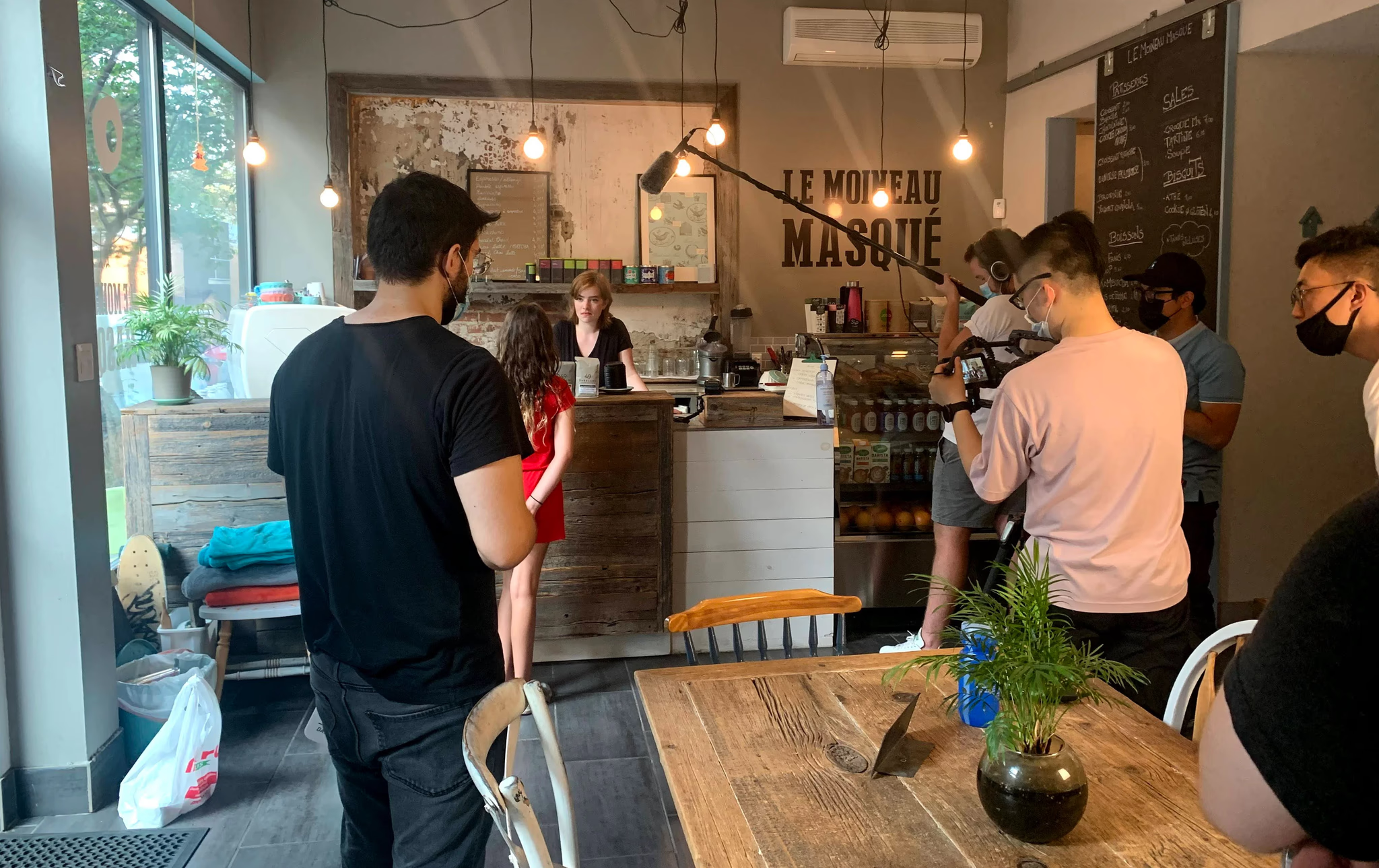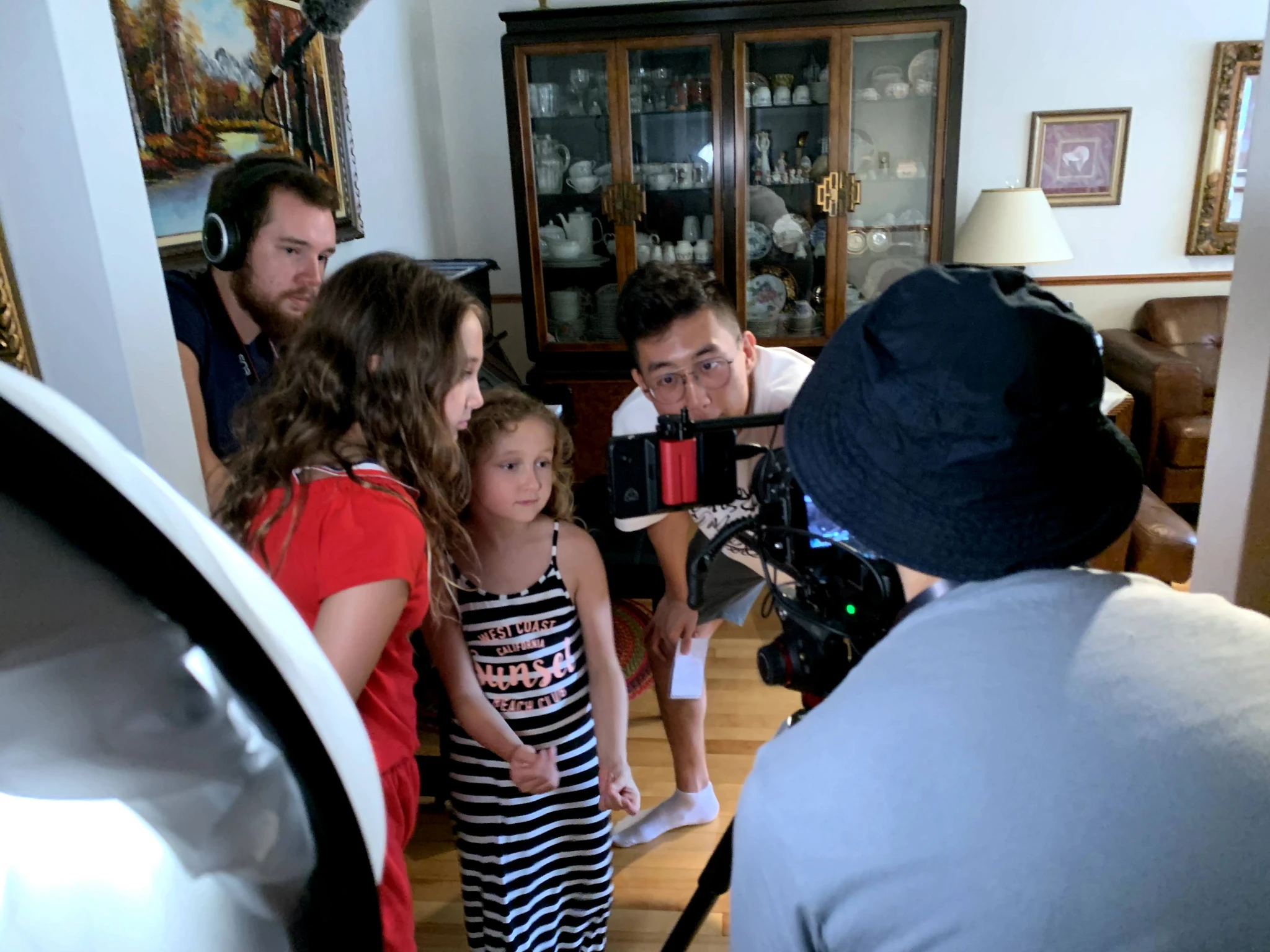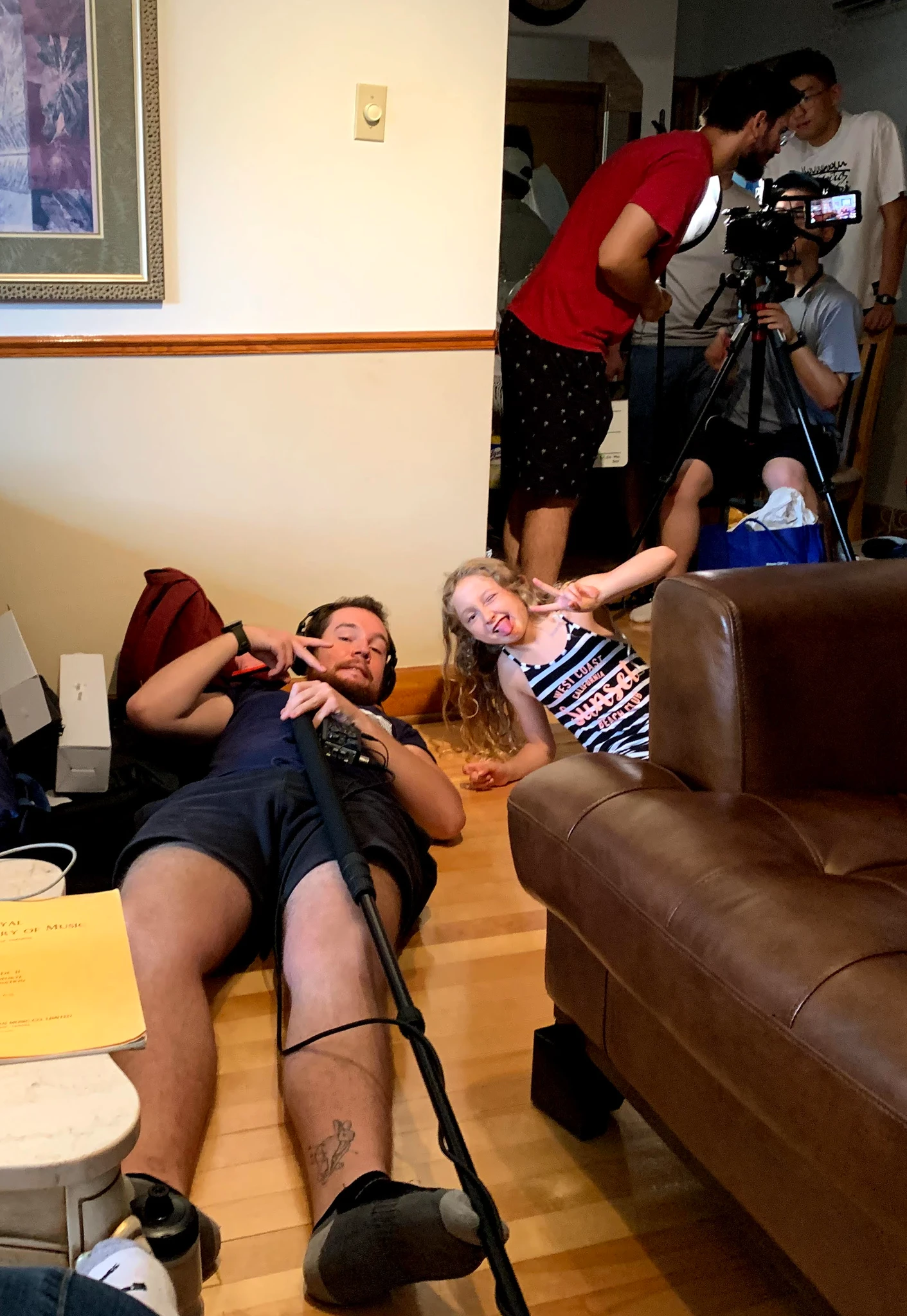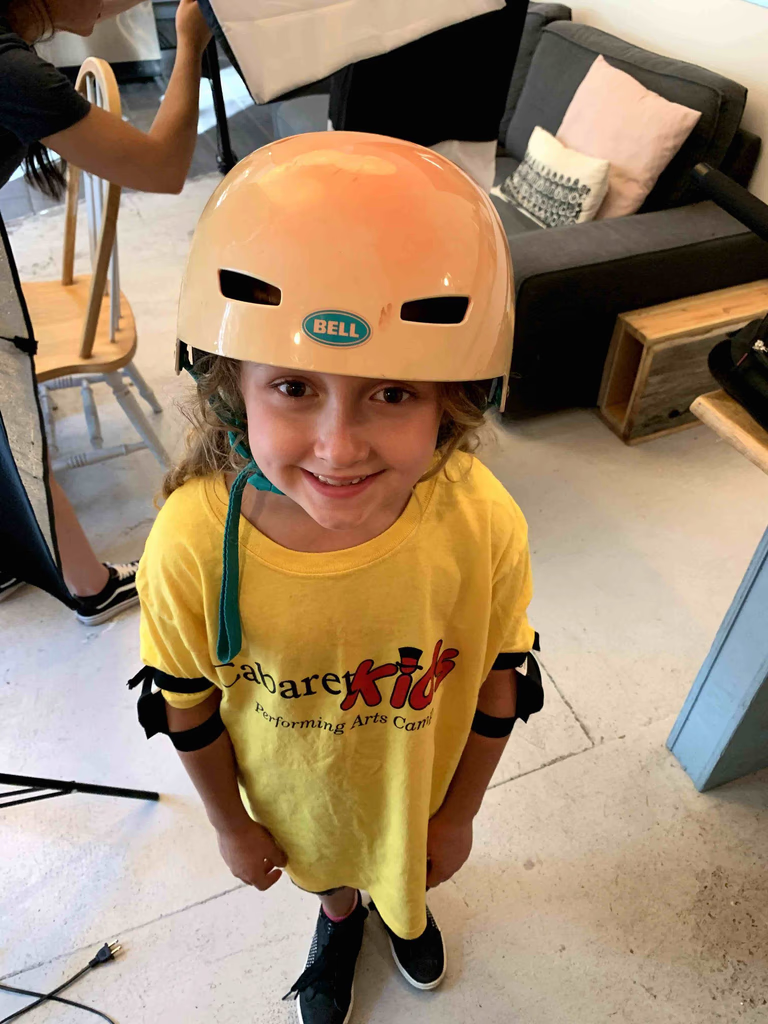My second short film - Another humbling experience
Towards the end of my university, I thought to myself that I had to do another short film before graduation. The shitshow begins right here.
Because I didn’t do any film for like 4 years, I figured I had to make this one GREAT. Quickly, I wrote a story that is about a tiny girl who wants to learn how to make latte art and somehow winds up carrying out a heist of milk from a coffee shop. The story was 16 pages. I thought, umm, this is a story full of action, suspense, and humor - a formula of success. And me, as an award-winning director, will do a great job.
I have to commend myself for the preproduction of this project. I took on the producer role as well - which later on proved to be not very wise. I found very amazing student crew members easily from my school. The DP even offered all the equipment needed.
But the most difficult parts were to find A: a coffee shop to shoot at that also has a specific structure I needed for the story, B: a girl and a boy around 10 years old who can play siblings.
I remember how daunting I felt for both of these tasks. There was one day that I perked up the courage and started visiting a bunch of coffee shops in Montreal to see if they could let us shoot. On a beautiful hot summer day, I visited 4 or 5 coffee shops. They either didn’t work or rejected the proposal plainly.
When I felt very discouraged, I visited the last one on my list. Visually, that one looked perfect! I started talking with the barista working there. To my utmost surprise, she was a film studies student from my school! When I told her about making a film in the coffee shop, her eyes lit up. She said she wanted to help, but I’d still have to convince the owner - a French lady who doesn’t speak much English.
When I got home, I phoned the owner. “Bonjour?”. Feeling so nervous, I started talking using my very broken French. After my explanation, I couldn’t believe the owner immediately responded “Oui!” (Yes) and a bunch of other things I didn’t understand. But what I could understand is that she could even offer the place to us for free - as long as it’s after their business hours. However, there was one more condition, she still needed us to get a third party liability insurance that costed 500$. That was the first time I realized how insurance can be a very annoying yet important factor in your filmmaking process.

Later on, I felt discouraged again, when I was trying to find the kids. The casting call I posted on the Facebook group was so underwhelming. The only candidate that looked great also ghosted me soon. In the audition, there was a girl, Sarah, who was great. But where could I find a brother for her?
When I was looking at the candidates’ emails in despair. I suddenly noticed the profile photo of Sarah’s mom - there is another little girl who’s probably Sarah’s sister. Why don’t I change the little boy character to a girl? I called the mom and she immediately agreed to bring both of her daughters to our set.
But I remembered as it was getting closer to the shooting day, I was already feeling tired. At the same time, I was still pumped to make this the best film ever. I wanted all the shots possible and there were a whopping 100 shots I remember in the shot list. That was a huge mistake.
Every day, we had only 3 hours at the coffee shop - from the closing 5 pm till 8 pm the sun sets. We were making a heist film but our shoot actually felt more like a heist, especially when I had 100 shots to do.
At the same time, I was over-optimistic about the situation. My mindset was still staying on the time when I was doing the first short film - just a camera and some actors. But this time with camera, sound, light, and focus pulling…, every shot takes so much longer to do. The boom can mess up the shot or the focus can be wrong. There were all kinds of unexpected things that I had no clue about.
When the shoot had to pause because of all these random issues, everybody would look at me, a complete rookie, for an answer. That stress was immense. When I didn’t know the answer, I began to stutter out of nervousness. Then I gave wrong instructions, everyone would become more frustrated. I hate that feeling - letting everyone down.
I remember after the first night, I was so stressed out. I literally sat down in a McDonald's alone for one hour with a big soda and a brain completely blanked out. Also, that night, when we were transporting the equipment back to the DP’s home. We forgot one bag full of equipment that’s worth at least 1500$. That made me feel even worse.
I still couldn’t believe that the shoot lasted 9 days - that means 9 days of chaos. At the end of it, I was getting more and more towards the point of breaking down. After one of the last few days, it was late at night when I was waiting for the bus with a crew member. He had autism issues and he was also tired. He started blurting out numerous things I did wrong and reminded me of many basic things that know I should do. On top of all of the frustrations from everyone, I suddenly felt extremely helpless. I cut him off and shouted, “I’m also a human being alright? You don’t need to tell me what to do.” He stopped talking and was completely in shock. Later, he told me how hurt he felt hearing that especially as a person with autism.
The next day, I apologized to him. Instead of accepting it, he eloquently recounted all of my mistakes and said how disappointed by me he was. Many times after, I tried to reconcile with him. We finally did but he said, “We’d never be friends again.”
The next morning, I called the DP asking if we could go over the shot list again and he shouted at me over the phone, saying what’s the point of going through something so simple. I was left speechless. I understood he was very frustrated by the whole thing. Before the shoot, he calmed down and pulled me aside. Peacefully he told me, “Including me, I guess most people will never want to work with you again.” That sentence stabbed me so hard at that moment.
Thinking back, the two persons who helped me most actually were most disappointed in me.
After the last day finished, I became depressed for at least two weeks. I felt I could accomplish nothing. After the depression faded away, I realized how much I lacked in terms of the basic skills in terms of film directing.
I’m still very thankful for that experience. The failures came early meant that I could start learning early.
Lessons Learnt:
-
If I were to do it again, I wouldn’t try to upscale so fast. Learning a craft takes patience. Results come along after the accumulation of efforts on the long-term.
-
Always take the pride/ego away. Otherwise, failures will be more heartbreaking.
-
There will always be unexpected things happening. Give the important and complex shots more time. (20-30 minutes at least for an indie set).
-
In terms of filmmaking, a basic skill is to break down a scene into effective shots (coverage). It’s important to practice this and learn to prioritize. It’s OK to want more fancier shots but usually, you just need a few to tell the story well.
-
When directing, it’s important to think clearly about the performance you need from each actor, even for the minor roles. Anybody might ask you, ‘What should I do?’. On top of that, explain the blocking to the crew with clarity.
-
Nervousness is a big enemy. The only way to defeat that is by trying more and getting more familiar with the craft. Even when you are nervous, try to speak with clarity and slowly so that communication is effective
-
Directing actors is something I should learn about more.
-
This might sound very basic, try to avoid producing and directing together. They are both very tenuous tasks.



